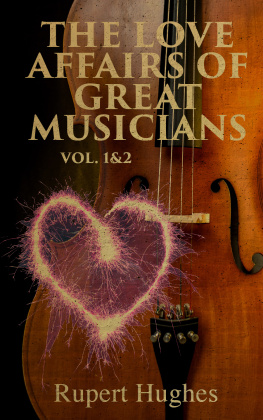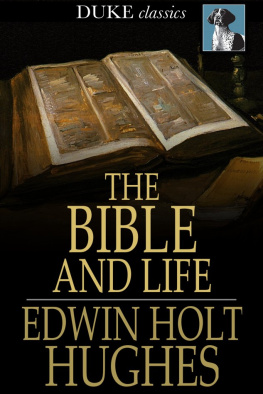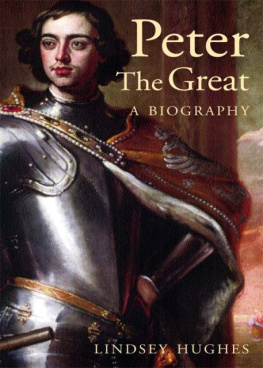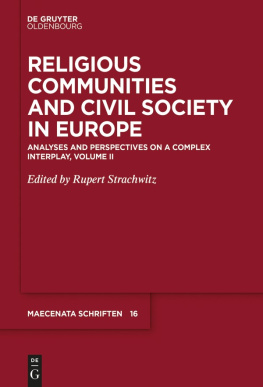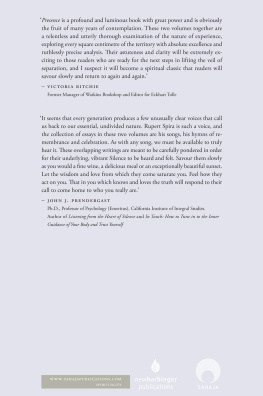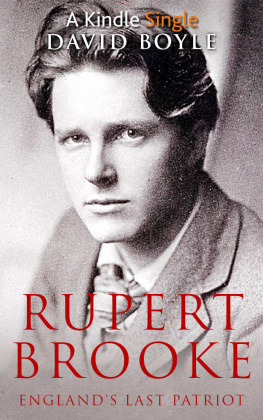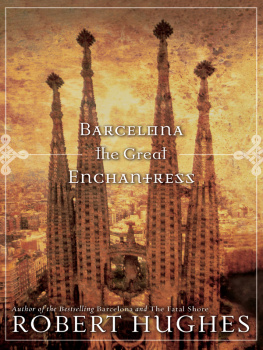Rupert Hughes - The Love Affairs of Great Musicians (Volume 1&2)
Here you can read online Rupert Hughes - The Love Affairs of Great Musicians (Volume 1&2) full text of the book (entire story) in english for free. Download pdf and epub, get meaning, cover and reviews about this ebook. year: 2020, publisher: e-artnow, genre: Non-fiction. Description of the work, (preface) as well as reviews are available. Best literature library LitArk.com created for fans of good reading and offers a wide selection of genres:
Romance novel
Science fiction
Adventure
Detective
Science
History
Home and family
Prose
Art
Politics
Computer
Non-fiction
Religion
Business
Children
Humor
Choose a favorite category and find really read worthwhile books. Enjoy immersion in the world of imagination, feel the emotions of the characters or learn something new for yourself, make an fascinating discovery.
- Book:The Love Affairs of Great Musicians (Volume 1&2)
- Author:
- Publisher:e-artnow
- Genre:
- Year:2020
- Rating:5 / 5
- Favourites:Add to favourites
- Your mark:
- 100
- 1
- 2
- 3
- 4
- 5
The Love Affairs of Great Musicians (Volume 1&2): summary, description and annotation
We offer to read an annotation, description, summary or preface (depends on what the author of the book "The Love Affairs of Great Musicians (Volume 1&2)" wrote himself). If you haven't found the necessary information about the book — write in the comments, we will try to find it.
The Love Affairs of Great Musicians (Volume 1&2) — read online for free the complete book (whole text) full work
Below is the text of the book, divided by pages. System saving the place of the last page read, allows you to conveniently read the book "The Love Affairs of Great Musicians (Volume 1&2)" online for free, without having to search again every time where you left off. Put a bookmark, and you can go to the page where you finished reading at any time.
Font size:
Interval:
Bookmark:
(Vol. 1&2)
Contact:
Two young and flamboyant musickers, boon companions, one twenty-two and the other eighteen, strike the town of Lbeck in 1703. They are drawn thither by a vacancy in the post of town-organist. And their competition is to be friendly.
Two flamboyant young musickers leave the town of Lbeck as soon as can be. For they have learned that the successful candidate must marry the daughter of the man in whose shoes they would fain have trodden the pedals. One look at the daughter was enough. She was not fair to see, and her years were thirty-fourjust six years less than the total years of the two young candidates.
Back to Hamburg the two friends go, and the next year their friendship suffers a serious strain. The elder, now aged twenty-three, is producing "Cleopatra," an opera of his own composition, and incidentally playing the role of Antony. The younger of the friends is the conductor, and presides, as is the custom of the time, at the clavecin. There is another custom in the performance of that opera, a curious one, too. For it is the wont of the composer-singer, when he has died as Antony, to come to life again and conduct the rest of his opera at the clavecin.
But the younger friend, now full of the importance of nineteen years, and being the successor to the great Reinhard Keiser, is not disposed to yield the clavecin, even to his versatile friend. A quarrel that narrowly escapes ruining the melodious swan-song of Cleopatra, is postponed till after the final curtain. Then it takes the form of a duel. The composer manages at last to elude the parry of the conductor; he throws all his weight and venom into a lunge that must prove fatalbut a large brass button sheds the point of the sword and saves its wearer for a better fate.
By the strange medicinal virtue of duels, the wound in the friendship is healed, honour is poulticed, and the friendship begins again, lasting with healthful interruptions until the younger musician goes his way toward the fulness of his glory; the elder his way along the lines of versatilitywhich leave him in the eyes of posterity rather valued as a writer than aught else.
The old organist whose death had brought these two younkers on their wild-goose chase was Dietrich Buxtehude, the famous man whom Johann Sebastian Bach walked fifty miles on foot to hear, and whose compositions he studied and profited from. Old Buxtehude, himself the son of an organist, had himself married the daughter of the organist who had preceded him. The daughter he left behind to frighten away aspiring candidates did not languish long. According to Chrysander, a certain J.C. Schieferdecker, who is famous for nothing else, wed the daughter, and "got the pretty job" ("erhielt den schnen Dienst").
The elder of the two young men was Johann Mattheson (16811764), a sort of "Admirable Crichton," who married in 1709 Catherine Jennings, daughter of an English clergyman and the relative of a British admiral. That is all of his story that belongs here.
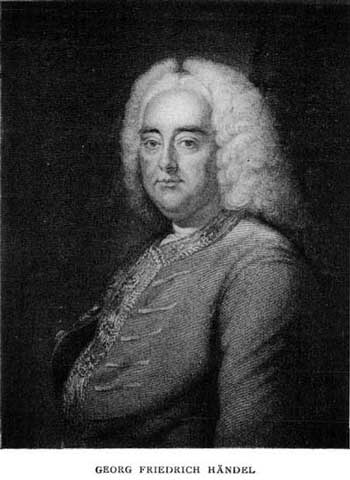
The younger man, whose life hung on a button, was that great personage whose name has been spelled almost every way imaginable between Hendtler and Handelthe later form being preferred by the English, who, as somebody said, love to speak learnedly of "Handel and Glck." It is not needful here to tell the story of his brilliant life and the big events it crowded into the four and seventy years between 1685 and 1759. His friend Mattheson, like Beethoven, spent his later years in the dungeon of deafness. Hndel, like his great rival Bach (who was born the same year), spent seven years in almost total blindness, three operations having failed. In almost every other respect the careers of these two men were unlike, particularly in the obscure and prolific married life of the one and in the almost royal prominence of the other's bachelorhood.
Hndel never married, and seems never even to have been in love, though he was an unusually pious son and a fond brother.
The only time on record when he took a woman into his arms was the occasion when the great singer, Cuzzoni, refused to sing an air of his the way he wished it. He seized her, and, dragging her to a window, threatened to throw her out, thundering, "I always knew you were a devil, but I'll show you that I am Beelzebub, the prince of devils."
Hndel's greatest love seems to have been for things to eat. In the memoirs of him, published anonymously [by Doctor Mainwaring] in 1760, the author says that Hndel was "always habituated to an uncommon portion of food and nourishment," and accuses him of "excessive indulgence in this lowest of gratifications."
"He certainly paid more attention to it than is becoming in any man; but it is some excuse that Nature had given him so vigorous a constitution, so exquisite a palate, so craving an appetite, that fortune enabled him to obey these calls, and to satisfy these demands of nature. Had he hurt his health or fortune by indulgences of this kind, they would have been vicious; as he did not, they were at the most indecorous."
A story is told of him that he once ordered up enough dinner for three. Noting that the servant dawdled about, Hndel demanded why; the servant answered that he was waiting for the company to come, whereupon Hndel stormed, in his famous broken English, "Den pring up der tinner prestissimo. I am de gombany."
In his later years Hndel was not so beautiful as he might have been, and Queen Anne, alluding to his bulk, said that his hands were feet and his fingers toes. Mrs. Bray, however, says that "in his youth he was the most handsome man of his time."
Handel resembles Lully somewhat in his reputation for being a lover of the table and a neglecter of womankind. Schoelcher in his biography states "that not one woman occupies the smallest place in the long career of his life." And yet contradicts himself in his very next sentence, for he adds:
"When he was in Italy a certain lady named Vittoria fell in love with him and even followed him from Florence to Venice. Burney describes Vittoria as 'a songstress of talent.' Fetis calls her the Archduchess Vittoria, but both agree that she was beautiful and that she filled the part of the prima donna in 'Roderigo,' his first Italian score. At that period, and even later, it was not uncommon to find princes and princesses singing in the pieces which were produced at their courts. Artist or archduchess, either title was enough to turn the head of a young man twenty-four years old; but Hndel disdained her love. All the English biographers say that he was too prudent to accept an attachment which would have been ruin to both. This is calumny, for he was never prudent."
This Vittoria is an interesting problem in romance. Doctor Mainwaring says that Hndel was Apollo and she Daphne. Chrysander in his great biography properly notes that the legend has been twisted, and represents here the god as fleeing from the nymph. Coxe says that Vittoria was "an excellent singer, the favourite mistress of the Grand Duke of Tuscany"which gives a decidedly different look to Hndel's "prudence."
Chrysander tries to prove that this Vittoria was no other than the famous singer, Vittoria Tesi, "a contralto of masculine strength," as one listener describes her voice. She was very dramatic, and made her chief success in men's roles, singing bass songs transposed an octave higher. She was born at Florence in 1690, and would have been seventeen years old when Hndel's "Roderigo" was produced there in 1707. That she should be capable of so ardent a love at that age need hardly be mentioned when we remember that Romeo's Juliet was only twelve at the time of her immortal amour. Love
Font size:
Interval:
Bookmark:
Similar books «The Love Affairs of Great Musicians (Volume 1&2)»
Look at similar books to The Love Affairs of Great Musicians (Volume 1&2). We have selected literature similar in name and meaning in the hope of providing readers with more options to find new, interesting, not yet read works.
Discussion, reviews of the book The Love Affairs of Great Musicians (Volume 1&2) and just readers' own opinions. Leave your comments, write what you think about the work, its meaning or the main characters. Specify what exactly you liked and what you didn't like, and why you think so.

